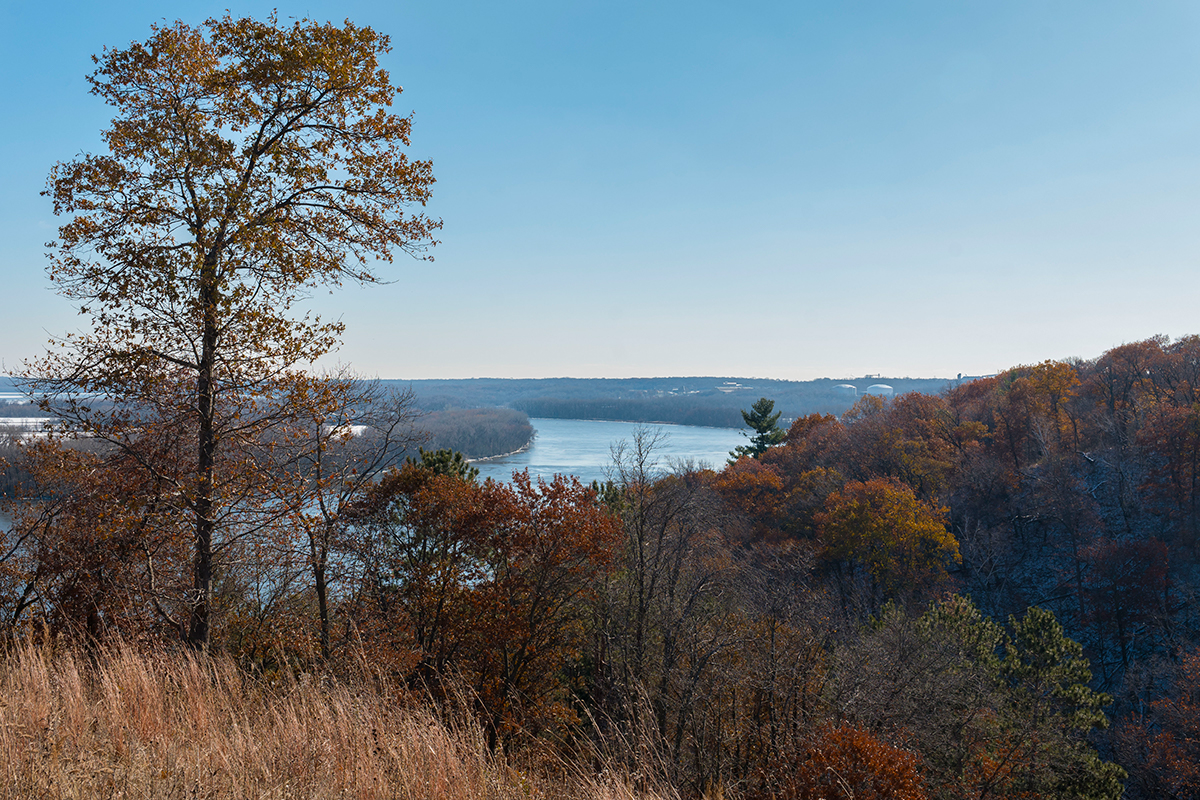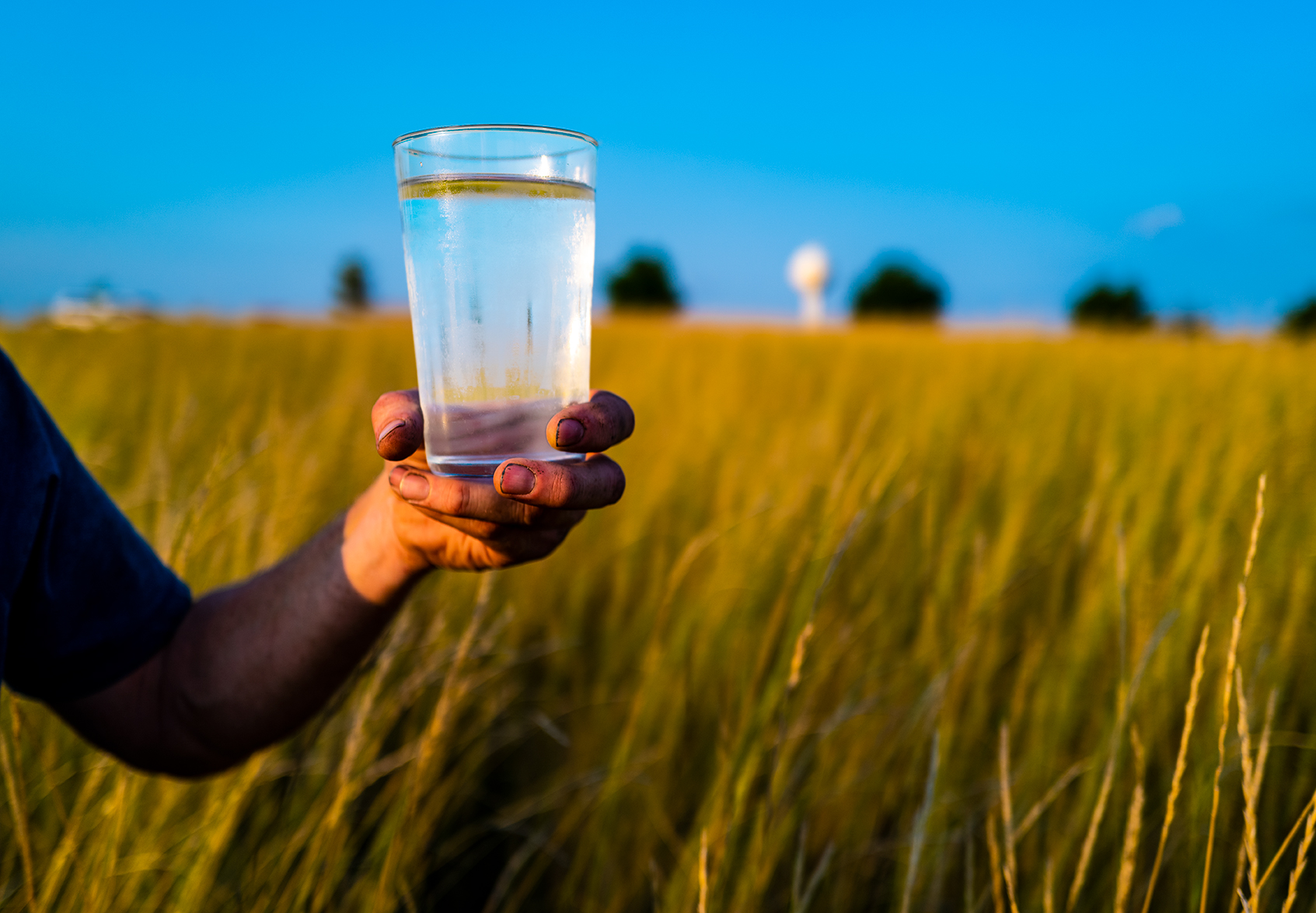What the lottery-backed environment fund has made possible for the Mississippi River

Vote YES this fall to keep the lottery working for our great outdoors, funding projects like the protection of Pine Bend Bluffs SNA and more. (Photo by Steve Cronin for FMR)
Minnesota’s Environment & Natural Resources Trust Fund (ENRTF) has invested over $1 billion in the great outdoors statewide since its establishment in 1988 when voters first approved a constitutional amendment to dedicate lottery proceeds to our environment.
As you may have heard from MPR News, the Star Tribune and FMR, renewal of the lottery fund is on the ballot this fall. We’ve been reflecting on what the fund means to FMR and the Mississippi River. We wanted to highlight a handful of recent projects that have helped FMR and our partners protect and restore our great river, as well as some exciting new work poised for funding next year.
Restoring habitat for wildlife and water quality
The Environment & Natural Resources Trust Fund has provided nearly $2 million to help FMR and our partners protect and restore more than 1,000 acres of habitat at dozens of sites through the river corridor.
If you've been to Pine Bend Bluffs Scientific & Natural Area (SNA), you know it's a special place. Critical for wildlife, this 256-acre protected land along the dramatic western bluffs of the Mississippi River south of the metro was our first major conservation project in the 1990s. Because of Environment & Natural Resources Trust Fund investment, FMR and numerous partners, including Dakota County and the MN Department of Natural Resources were able to help acquire, protect and restore land that makes up the SNA.
Pine Bend Bluffs SNA is an important link in a string of protected parcels that make up the Pine Bend Bluffs natural area, and highlights the results of important metro-wide planning efforts such as the ENRTF-funded Metro Greenways and Metro Conservation Corridors projects.
Since, the lottery fund has made dozens of FMR conservation projects possible. Here are just a few recent flagship examples:
- Wakáŋ Tipi (Bruce Vento Nature Sanctuary) in St. Paul
- Applewood Preserve and Carver Preserve in Maplewood
- Hastings Sand Coulee SNA
- Ole Olson Park in Minneapolis
- Mississippi River Gorge (multiple sites)
- River Heights Park in Inver Grove Heights
- Spring Lake Park Reserve in Dakota County
- FMR’s pollinator research (multiple sites)
Uncovering the hidden risks of triclosan
As we noted in our 2012 State of the River Report, ENRTF-funded research was pivotal in identifying the serious environmental risks of triclosan-derived dioxins in our lakes and streams. In response, the Minnesota Legislature passed an FMR-led, first-in-the-nation bill prohibiting the retail sale of consumer cleaning products containing triclosan. The U.S. Environmental Protection Agency then followed suit in 2017. As a result of this environmental funding, the nation's environment and public health are better off.
Figuring out the best way to deter invasive carp
Thanks to ENTRF-funded research at the University of Minnesota, we know where and how to build an invasive carp deterrent in the Mississippi River. This research enabled FMR and our Stop Carp Coalition partners to successfully advocate that the Legislature fund the construction of that deterrent at Lock and Dam 5 near Winona. With planning underway, we have a shot at being the first state along the Mississippi River to proactively protect our waters from invasive carp.
Advancing Forever Green cropping systems

More Kernza means safer drinking water and a healthier Mississippi River.
The lottery fund has provided nearly $2.8 million to help the University of Minnesota’s Forever Green Initiative scale up continuous living cover cropping systems like perennial and winter annual crops. Continuous living cover can improve water quality and habitat while enhancing farm prosperity throughout the region. A couple of recent highlights include:
- Protecting public wells and drinking water by growing Kernza: This project established demonstration fields of Intermediate wheatgrass (Kernza®) within wellhead protection areas in central and southeast Minnesota to protect public drinking water.
- Cover crops and water quality: This project planted camelina and other cover crops that reduce nitrate contamination while developing new commercial markets for farmers.
More funding on the horizon
Several exciting FMR priorities have been recommended for funding in 2025 and await legislative approval next spring, including:
Lock and Dam 1 sediment study
To properly weigh the costs and benefits of dam removal on the metro Mississippi River, we need to understand what would happen to the 3 million cubic meters of sediment (some of it polluted) currently backed up behind Lock and Dam 1. The University of Minnesota’s St. Anthony Falls Lab is poised to use $427,000 in ENRTF funds to study exactly that.
Continuous living cover value chain grants
A state grant program (that FMR helped design) will use $450,000 in funding to support the local supply chain businesses — seed cleaners, bakeries, food distributors and more — to help bring continuous living cover crops from Minnesota farm fields to markets nationwide.
Forever Green plant genetics research
Research projects that focus on developing new perennial and winter-annual crops that protect water, wildlife, soil, the climate and other natural resources will receive $2.3 million in funding.
Vote YES on your ballot this Election Day
It's clear that the Environment & Natural Resources Trust Fund has made critical investments that help keep the Mississippi mighty. Preserving these funds is an opportunity that Minnesota voters can’t afford to miss.
You'll find this measure on your 2024 general election ballot. We encourage you to vote YES. Leaving it blank counts as a NO vote.
Learn more about why renewing the fund is so important and how you can support it this fall.
Become a River Guardian
Sign up and we'll email you when important river issues arise. We make it quick and easy to contact decision-makers. River Guardians are also invited to special social hours and other events about legislative and metro river corridor issues.